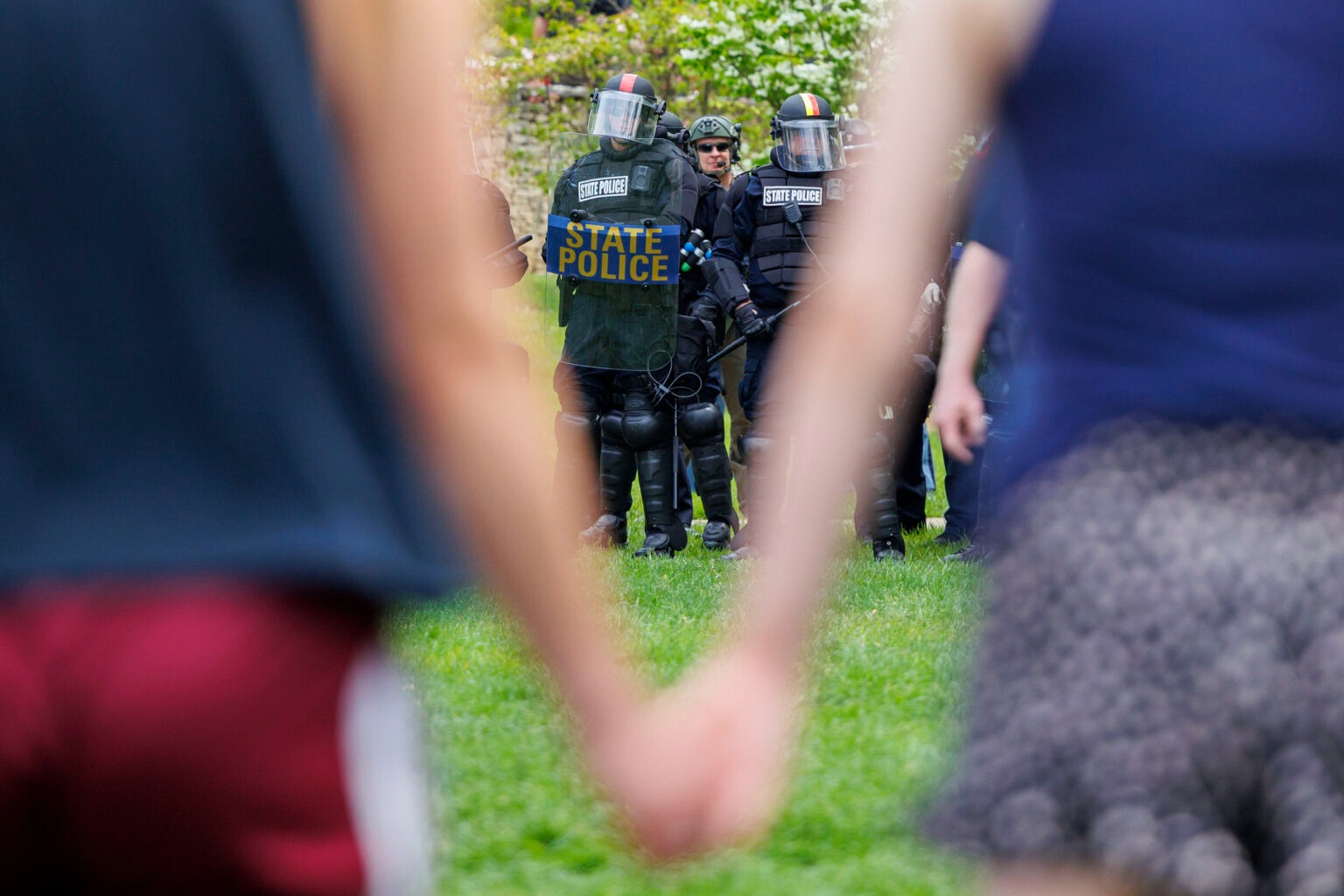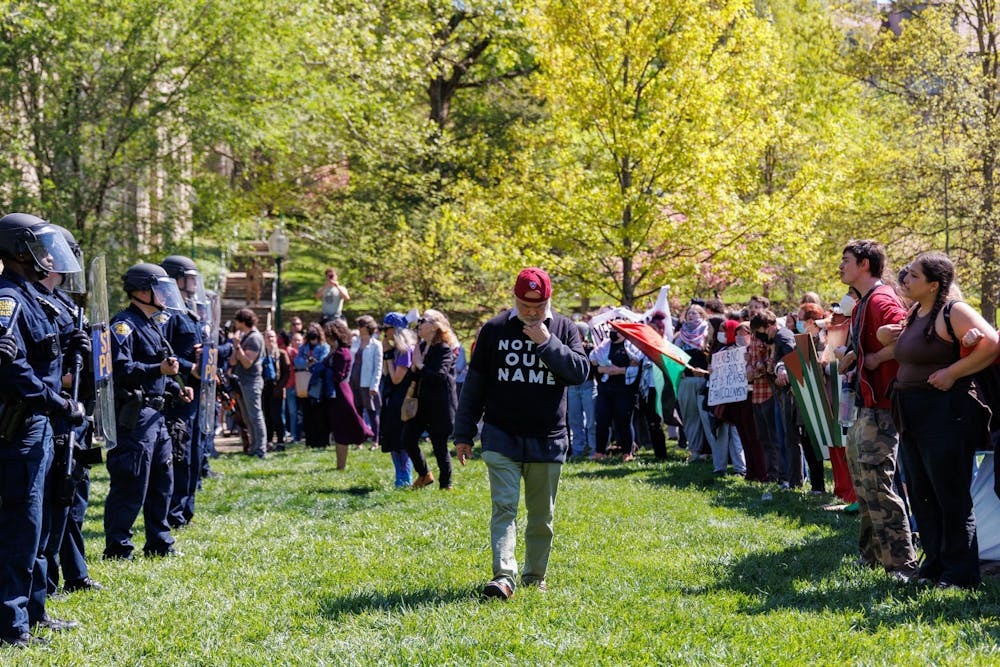The American Civil Liberties Union (ACLU) of Indiana has filed a lawsuit against Indiana University, alleging that the school has violated the First Amendment rights of individuals who have been banned from campus after participating in pro-Palestine protests.
The ACLU represents three individuals: Jasper Wirtshafter, a Bloomington resident, Dr. Benjamin Robinson, a tenured professor, and Madeleine Meldrum, a current graduate student, who were arrested and subsequently banned from campus for one year.
According to the ACLU, the university’s actions constitute an unlawful prior restraint on the plaintiffs’ free speech rights, who wish to rejoin ongoing protests on campus. The lawsuit seeks to dismiss the one-year bans, allowing the plaintiffs to exercise their right to free speech and participate in current and future protests on campus.

The arrests and subsequent bans have been part of a larger wave of protests on college campuses across the country, with over 50 arrests on Indiana University’s campus and over 2,000 protests nationwide since community members began calling on universities to divest from Israeli companies and companies that supply weapons to Israel.
The protests have largely been peaceful, but tensions have escalated in recent weeks, with police moving onto campuses to disperse demonstrators and a growing number of counter-protesters emerging.
The ACLU argues that Indiana University’s actions clearly violate the First Amendment, which protects the right to free speech and peaceful assembly. Dunn Meadow, where the arrests took place, has been designated as a free speech area on campus since 1969, and the ACLU contends that the university cannot preemptively ban individuals from entering the area for a year or more, effectively silencing their voices and stifling their right to protest.

In remarks this week, President Biden emphasized that peaceful protests are protected under the First Amendment in the United States, but “violent protests are not protected.” In this case, the ACLU and the plaintiffs agree and seek to ensure that their right to peaceful protest is upheld.
The lawsuit has sparked a more comprehensive conversation about the role of free speech on college campuses and the limits of university authority. Indiana University has yet to comment on the lawsuit, but the ACLU is confident that the courts will uphold the plaintiffs’ right to free speech and peaceful assembly.
As the situation continues to be exposed, it remains to be seen how universities will balance their responsibility to maintain order on campus with their obligation to protect their students’ and community members’ First Amendment rights.


